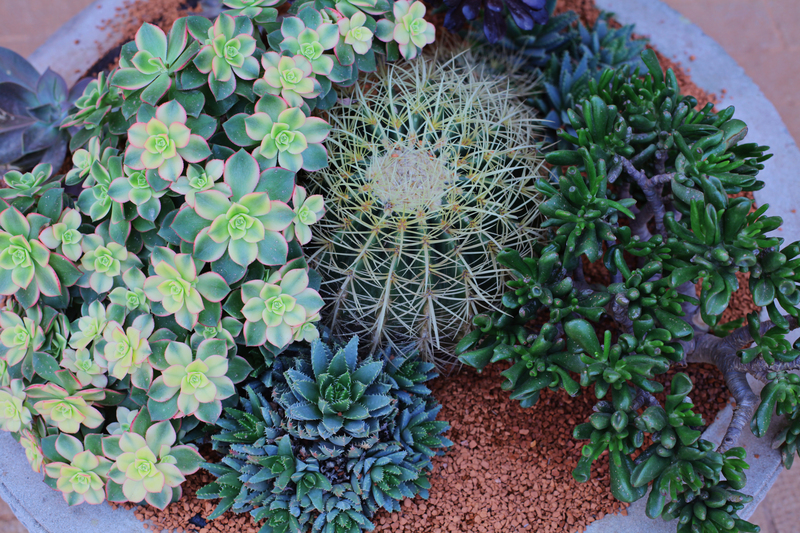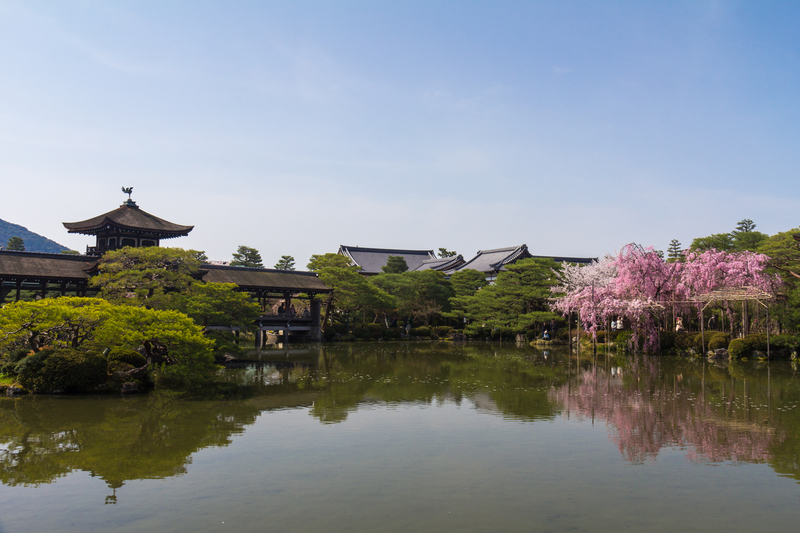Elevate your outdoor space with Zen garden concepts
Posted on 05/06/2025
Elevate Your Outdoor Space with Zen Garden Concepts
Whether your outdoor area is a sprawling backyard or a compact urban balcony, the ancient principles of Zen gardens can transform your space into a peaceful retreat. By adopting Zen garden concepts, you'll create a sanctuary that offers tranquility, beauty, and a reflective atmosphere. In this comprehensive guide, discover how to elevate your outdoor space with Zen-inspired ideas, practical design tips, and creative landscaping inspiration.

What is a Zen Garden?
Zen gardens, known as Karesansui in Japanese, are traditional gardens designed to inspire meditation and contemplation. Unlike typical gardens, Zen gardens use minimalism, asymmetry, and symbolism to create a serene ambiance. They commonly feature rocks, gravel, sand, moss, and carefully chosen plants instead of lush flower beds.
- Origin: Developed by Japanese Buddhist monks during the medieval era
- Purpose: Serve as an aid to meditation and spiritual practice
- Key features: Simulated landscapes using rocks, sand, gravel, and minimal greenery
Philosophy Behind Zen Garden Concepts
At the heart of Zen gardening is the principle of simplicity and tranquility. Every element selected in a Zen garden holds meaning and contributes to a balanced, harmonious whole. Zen gardens are designed to support mindful living, helping visitors disconnect from distractions and connect with nature's stillness.
- Minimalism: Less is more. Open spaces foster a calm mind.
- Symbolism: Stones symbolize mountains or islands; sand and gravel symbolize water.
- Asymmetry: Irregular placement mimics the unpredictability of nature.
Benefits of Zen Garden-Themed Outdoor Spaces
Choosing a Zen garden design for your outdoor space is not just an aesthetic decision--it's a lifestyle upgrade. Here are some invaluable benefits:
- Stress Reduction: The peaceful ambiance naturally lowers anxiety and tension.
- Enhanced Focus: Minimalist landscapes promote mindfulness and clarity.
- Low Maintenance: Zen features like gravel and stone require less upkeep than traditional gardens.
- All-Season Appeal: Evergreen elements keep your garden beautiful year-round.
- Outdoor Enjoyment: A Zen retreat encourages more time outdoors, improving overall well-being.
Essential Elements of Zen Gardens
To effectively elevate your outdoor space with Zen garden concepts, first understand the core elements that make these gardens unique.
Stones and Rocks
Rocks and stones are the backbone of Zen landscaping. Each stone is thoughtfully placed to represent mountains, islands, or even living creatures. The variety in shape and texture offers natural visual interest without overwhelming the senses.
- Try This: Use one large stone as a focal point (a "mountain") and group smaller stones around it for balance.
- Arrangement Tips: Odd-numbered groupings are considered most pleasing in Zen philosophy.
Sand and Gravel
Fine sand or gravel is often raked into flowing patterns that mimic water ripples and symbolize rivers or the sea. The act of raking itself can become a mindful meditative practice.
- Recommended: White or gray gravel for purity and contrast
- Pro Tip: Experiment with different raking patterns, such as waves, circles, or straight lines.
Minimalist Plants and Moss
While Zen gardens are not typically overflowing with plants, selective use of greenery adds softness and life. Popular choices include moss, dwarf bamboo, ferns, and low-growing evergreens.
- Moss: Symbolizes quietude and endurance
- Bamboo: Represents strength and flexibility
- Evergreens: Provide color throughout all seasons
Water Features
Water, or the suggestion of water, is central to Zen garden concepts. Even in small outdoor spaces, features like a stone basin, a simple fountain, or a dry stream bed of artfully placed pebbles can evoke the essence of flowing water.
- Traditional: Tsukubai (stone water basin)
- Modern: Minimalist trough fountain or trickling wall feature
- Symbolic: Patterned gravel as a "dry river"
Walkways and Stepping Stones
Curving paths using flat stones or gravel invite guests to move mindfully through your outdoor Zen oasis. These walkways create a journey, both physical and meditative, encouraging you to slow down and connect with each element.
- Irregular Placement: Mimics the unpredictability of natural landscapes
- Materials: Slate, granite, or river stones are popular choices
Designing Your Zen Outdoor Space: Step-by-Step Guide
Ready to transform your backyard or patio into a Zen retreat? Follow these actionable steps:
1. Assess Your Space
- Walk Around: Consider the size, sunlight, drainage, and existing features.
- Pick a Focus Area: Even a corner or side yard can become a Zen sanctuary.
2. Create a Simple Floor Plan
- Sketch Your Layout: Use paper or a garden design app.
- Zones: Mark areas for rocks, gravel, plants, water, and walkways.
3. Choose the Right Materials
- Natural: Opt for organic materials like granite, river stones, and bamboo.
- Sustainable: Use recycled stone and native plants where possible.
4. Incorporate Zen Principles
- Balance: Arrange stones and plants in harmonious groupings.
- Asymmetry: Avoid perfect symmetry--nature is beautifully irregular.
- Negative Space: Leave portions open for a breathable, tranquil feeling.
5. Install Key Features
- Stones: Position your largest rocks first for structure.
- Gravel/Sand: Fill pathways and open areas, then rake patterns.
- Plants: Add moss and foliage with an eye on simplicity, not abundance.
- Water Features: Place only if space and budget allow.
6. Add Finishing Touches
- Lanterns or Sculpture: A single stone lantern or minimalist sculpture completes the scene.
- Seating: A small bench or rock seat encourages mindful relaxation.
- Lighting: Soft outdoor lights or solar lanterns maintain the ambiance after dark.
Creative Zen Garden Ideas for Every Outdoor Space
- Mini Zen Gardens for Apartments or Balconies: Use a tray with sand, pebbles, and a few stones for instant tranquility.
- Urban Rooftop Zen Retreats: Blend gravel rugs, large planters with bamboo, and a tabletop water feature.
- Backyard Meditation Corners: Fence off a corner with bamboo, moss flooring, and a stone path leading to a meditation seat.
- Front Yard Curb Appeal: Replace grass with patterned gravel and clustered rock arrangements for a contemporary Zen look.
Popular Plant Choices for Your Zen-Inspired Garden
- Moss: Sheet moss, mood moss
- Bamboo: Dwarf varieties, clumping bamboo
- Japanese Maple: Graceful, colorful focal points
- Ferns: Soft, textured greenery
- Pine Trees: Symbolic of longevity and steadfastness
How to Maintain Your Zen Garden for Year-Round Tranquility
A Zen garden is designed to be low maintenance, but a little care will ensure it always feels peaceful and fresh.
- Rake gravel or sand regularly to refresh patterns.
- Prune moss, bamboo, and ferns to maintain clean lines and prevent overgrowth.
- Clear leaves and debris for an uncluttered look.
- Check water features for algae or debris and clean as needed.
Additional Tips for Lasting Beauty
- Seasonal Touches: Add subtle, site-specific decorations for special occasions (e.g., a simple arrangement of candles or lanterns).
- Wildlife-Friendly: Include birdbaths or a shallow basin for visiting birds if desired.
- Mindful Moments: Make time to sit, meditate, or just breathe in your Zen space daily.

Frequently Asked Questions
How much space do you need for a Zen garden?
Zen garden concepts work in all outdoor spaces. From small table-top gardens for patios to full backyard dimensions, the key is to maximize tranquility, not size. Even a compact area can feel expansive with negative space and careful placement of elements.
Can you create a low-cost Zen garden?
Absolutely! Use locally sourced rocks, affordable gravel or sand, and moss or low-cost ground cover. DIY your raking tools, and start with a single feature if on a budget.
Do Zen gardens have to be dry gardens?
While traditional Karesansui gardens are "dry," you can creatively incorporate water features. A simple basin, shallow pond, or symbolic dry riverbed enhances the Zen effect in many climates.
Summary: Embrace Harmony and Elevate Your Outdoor Space Today
By adopting Zen garden concepts, you not only beautify your home but also enhance your mental well-being. Every stone, every curve, and every empty space is an invitation to pause and appreciate the present moment. Whether you opt for a sprawling Zen-inspired retreat or a minimalist balcony garden, these ideas will elevate your outdoor space into a sanctuary of peace and simplicity.
Let the timeless elegance and tranquility of Zen design principles inspire your next landscaping project. Harness the power of minimalism, embrace nature's beauty, and create an outdoor haven that soothes the soul--right in your own backyard.
Latest Posts
Vertical Gardening: A Green Revolution for Urban Dwellers
Orchid Care Essentials for Beginners
Must-Have Gear for Every Gardening Adventure
Seasonal Shield: Prepare Your Plants for Winter's Harshness
Transform Your Garden into a Fort with These Severe Weather Protection Tips

